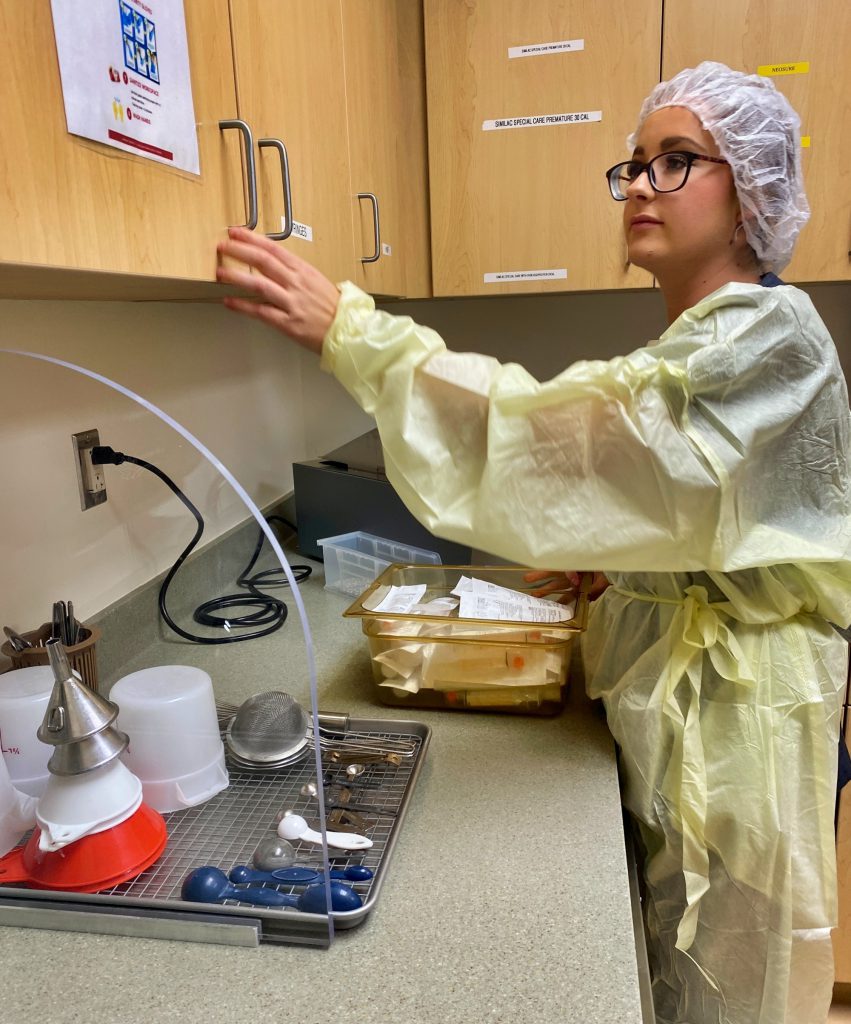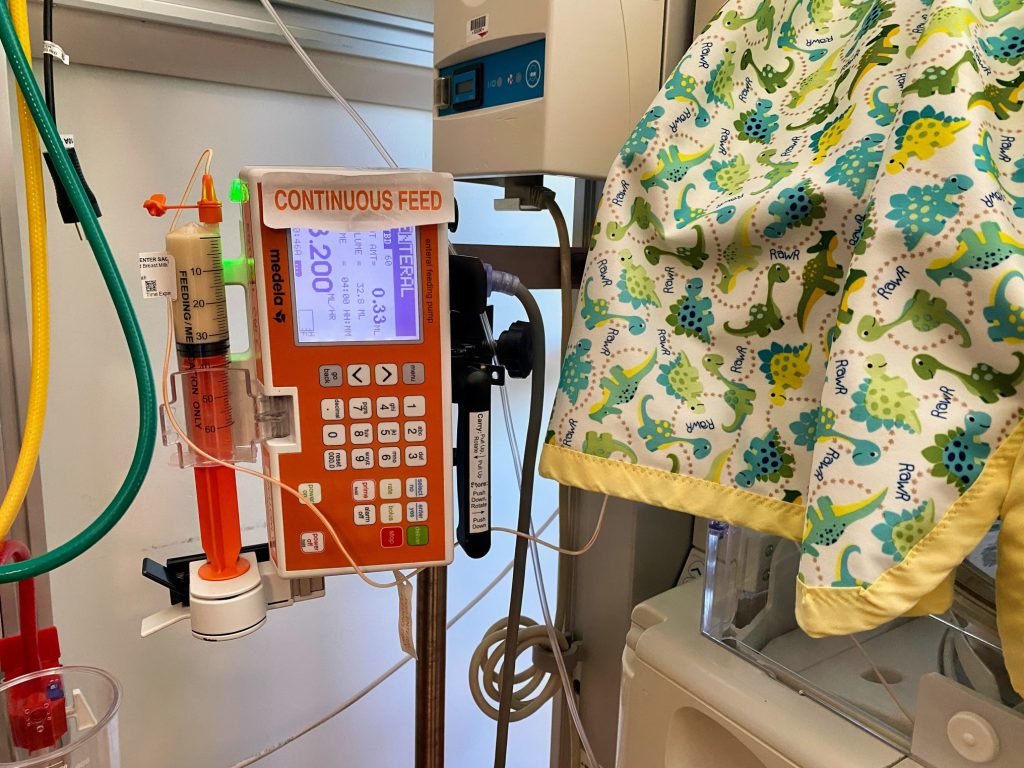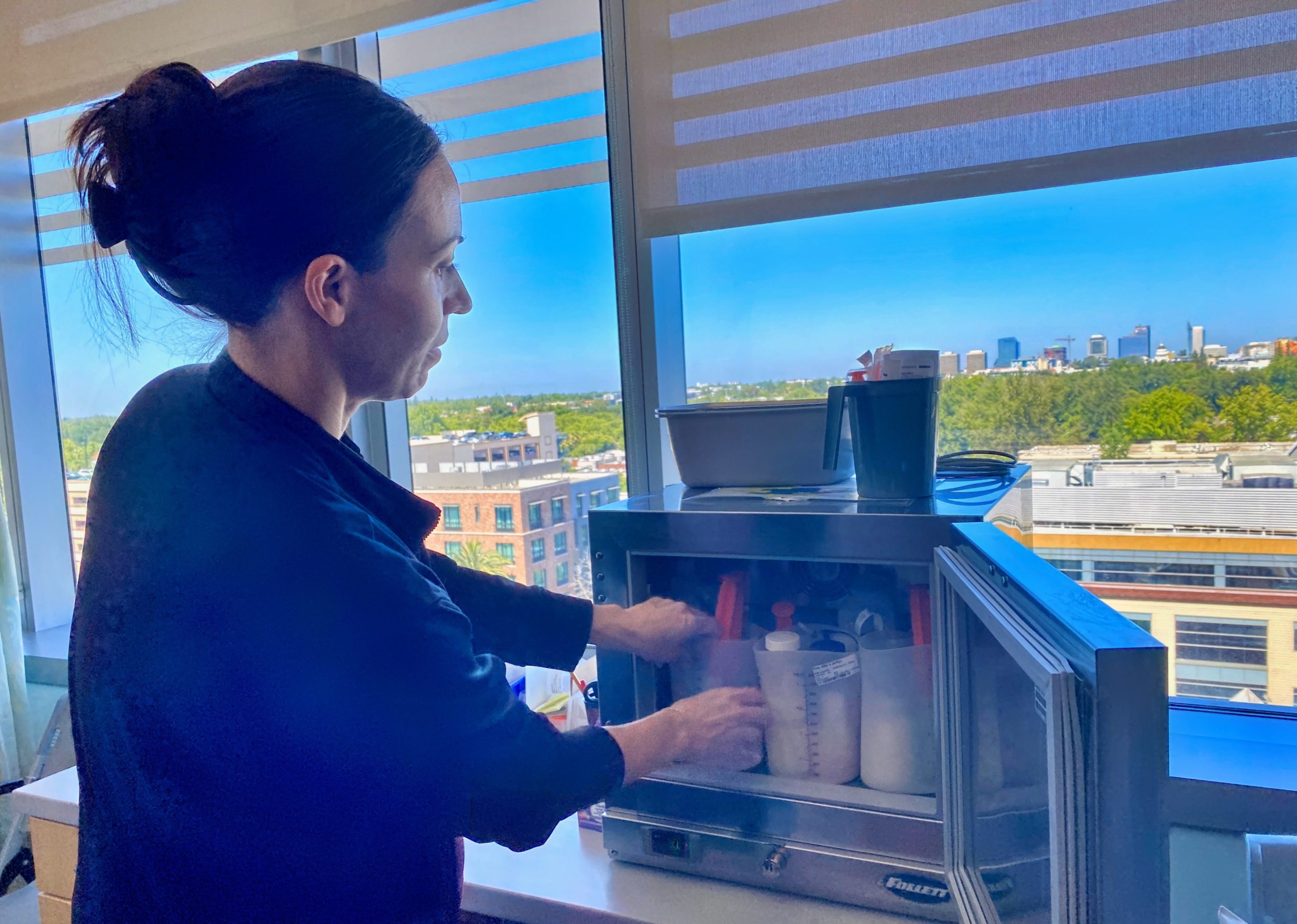Dietitian Vanessa Peterson shows a NICU refrigerator where parents can leave their pumped breastmilk for milk technicians to fortify.
By Lara Azar, Vitals contributor
What do you call a person who visits a hospital’s littlest, most vulnerable babies and takes care of their feeding needs so their nurses can focus on their medical needs?
At Sutter Medical Center, Sacramento, they’re called dairy fairies.

One of Sutter Medical Center’s human milk technicians — nicknamed the “dairy fairies” — gathers supplies for preparing fortified feedings for infants in the medical center’s NICU.
Actually, that’s just a nickname. Really, they’re called “human milk technicians,” and they’re a brand-new role at the medical center, which delivers thousands of babies each year and has Northern California’s largest neonatal intensive care unit. But for new mom Erika Rodea, the mythical moniker seems more apt.
Her daughter, Malia, was born premature just three days before the milk tech program went live at Sutter Medical Center, so she was one of the first babies to receive the services. Rodea now reflects on the sense of comfort she got knowing that her milk was being prepared by specially trained technicians in a sterile environment while newborn Malia was in her most fragile state.
That was the goal at the heart of the milk tech program, say Joan Baca and Vanessa Peterson. Baca manages medical nutrition therapy at Sutter Medical Center, Peterson is the hospital’s NICU dietitian, and the pair were responsible for launching the milk tech program.
Essentially, the milk techs gather the breastmilk that each mom is able to pump and take it to a sterile preparation area where they prepare a mathematically precise mix of milk, fortifiers and/or formula according to each baby’s unique schedule, nutritional needs and other variables. They then deliver the milk back to each baby’s bedside for the NICU nurses to use for feedings. Right now, in the early stages, the technicians are caring for infants younger than 32 weeks, with the goal of expanding to the whole unit.
“Not only is it a safer way to prepare the infants’ feedings, but it also gives the RNs an opportunity to direct more of their attention to other tasks,” Baca says. “That might include patient care, parent teaching or supporting breastfeeding attempts, for example.”

NICU infant receive a precise mix of milk, fortifiers and formula according to the baby’s unique schedule, nutritional needs and other variables.
Mom Rodea says that’s how she first learned about the milk tech program — she overheard how excited the nurses were about it. One NICU nurse pointed out how the program lifts both a physical task and a mental load for her, and Baca’s initial calculations indicate that it saves about 23 hours of registered nurse time per day.
“We’ve been wanting this for years, so we’re very proud of it,” Peterson says. “It’s very important for limiting contamination and for supporting breastfeeding. It’s really a best practice.”
For milk tech Yaquelin Bugarin, it’s also an experience that’s as satisfying personally as it is professionally. She is pursuing a master’s degree in maternal and child health with a special interest in the lactation process and its benefits. So Sutter Medical Center’s human milk technician program is “a great experience and fits right in with where I want to be.”
Plus, she says: “It’s nice to know that we’re helping these families even a little bit.”





